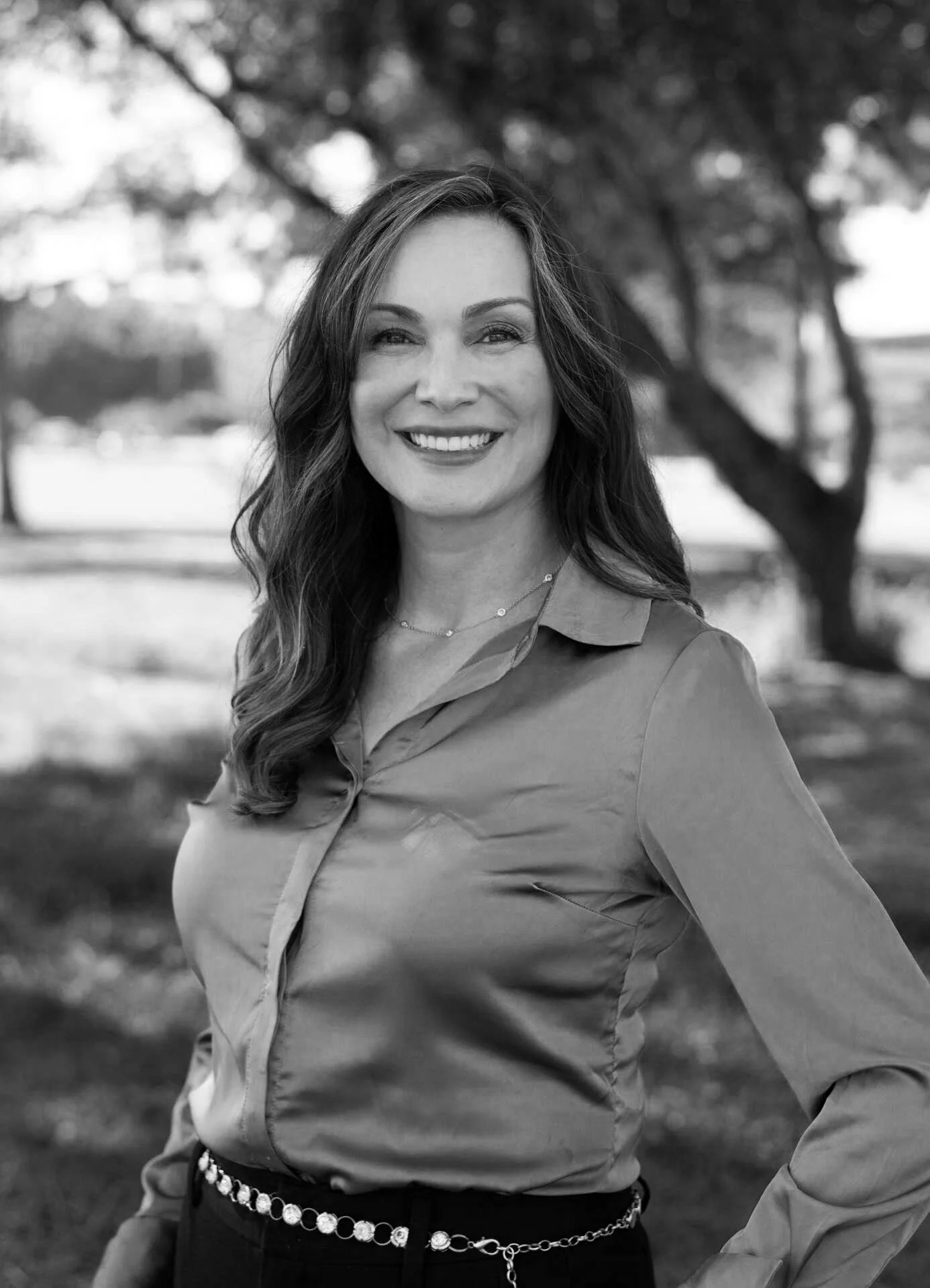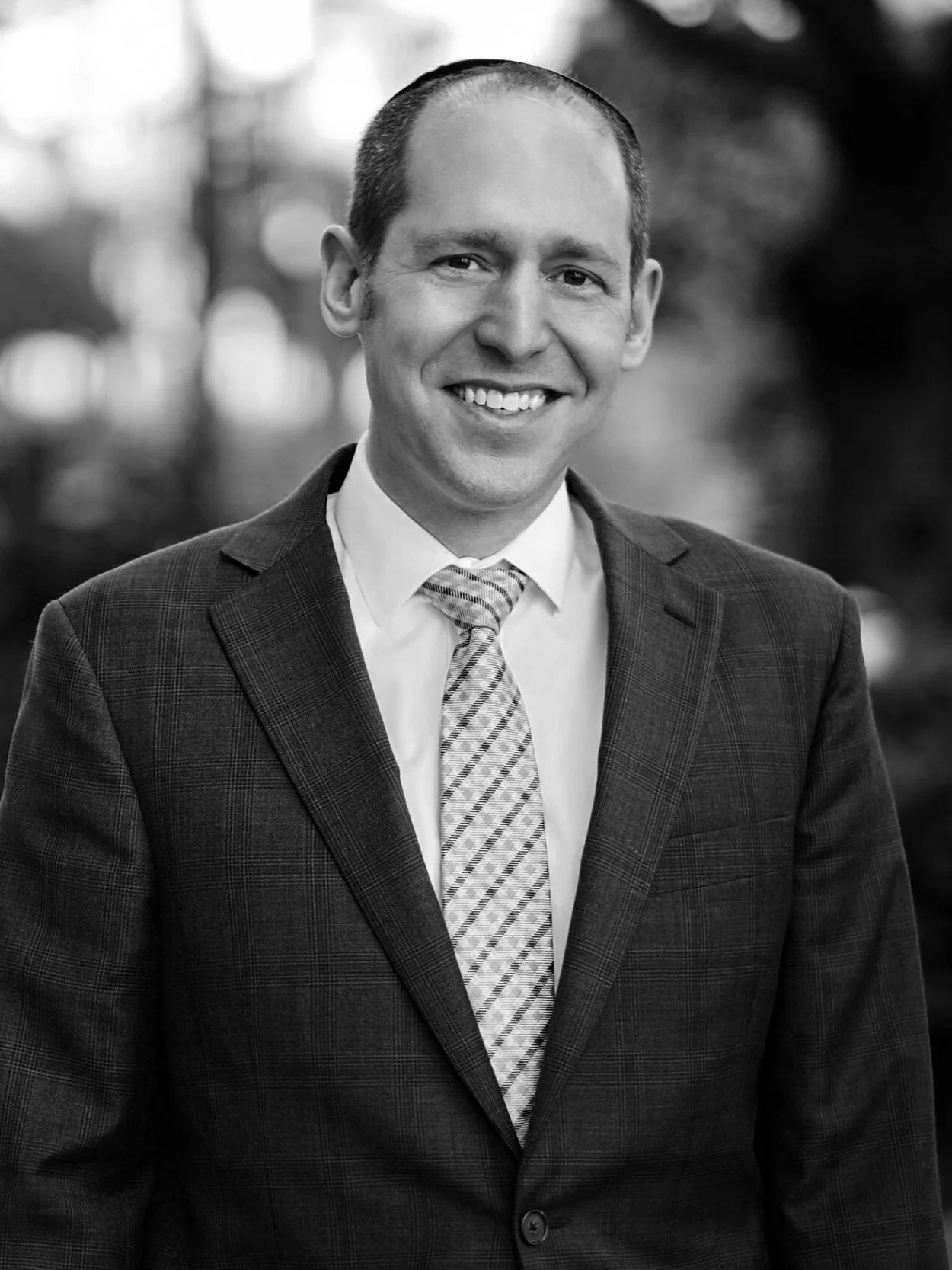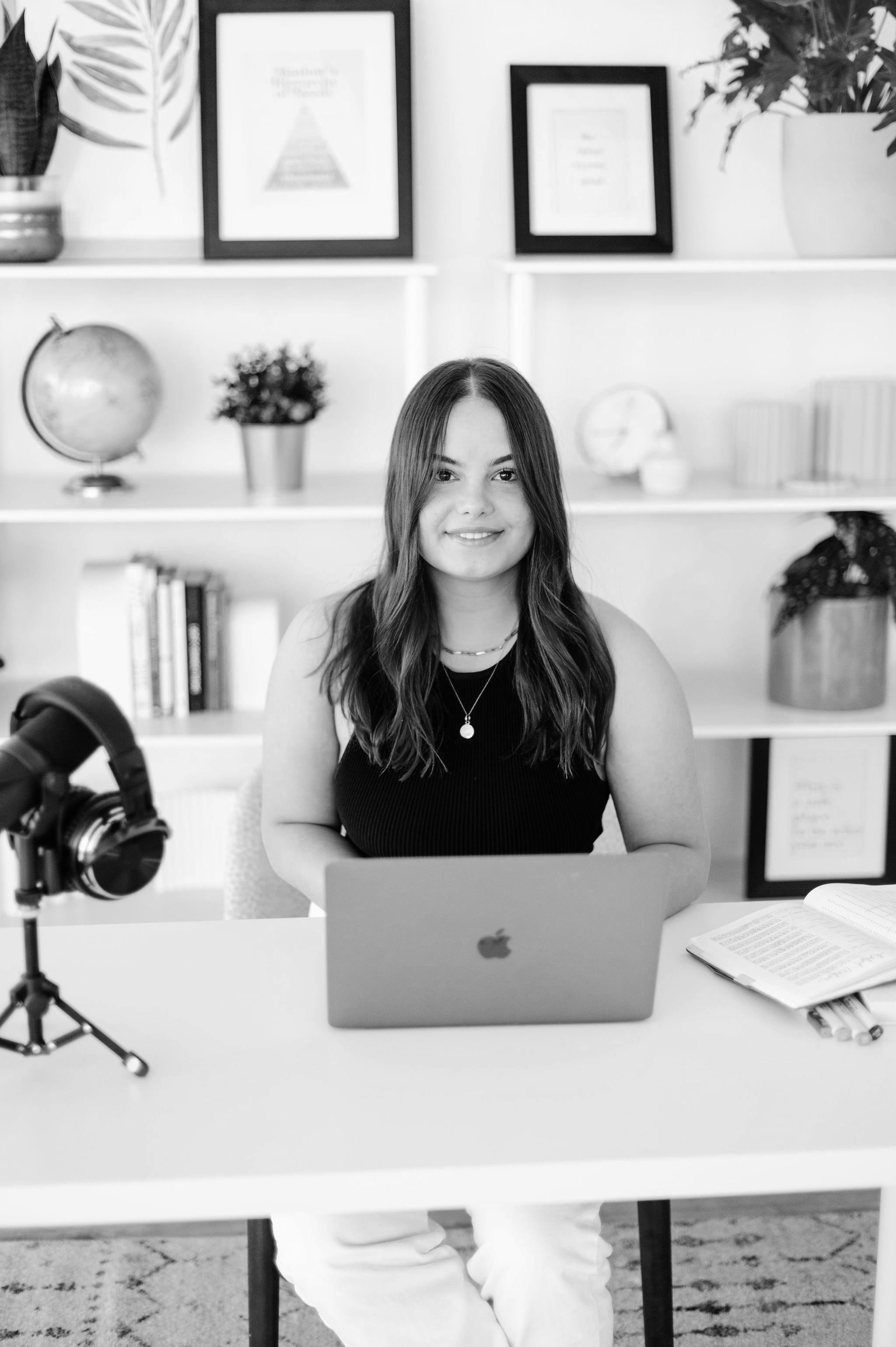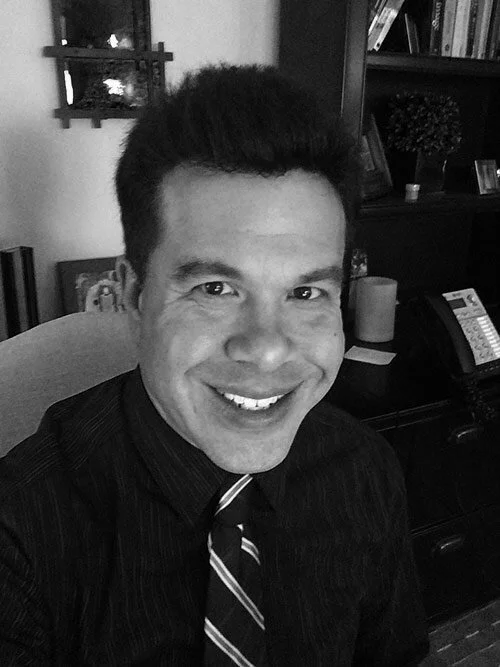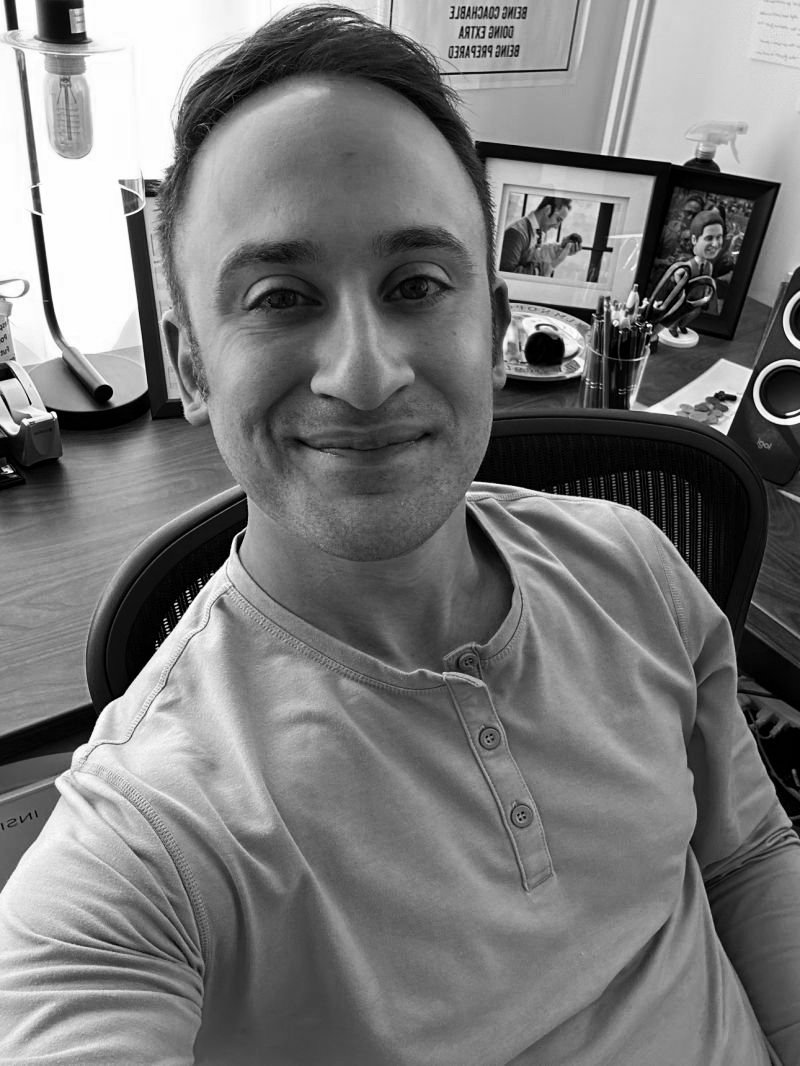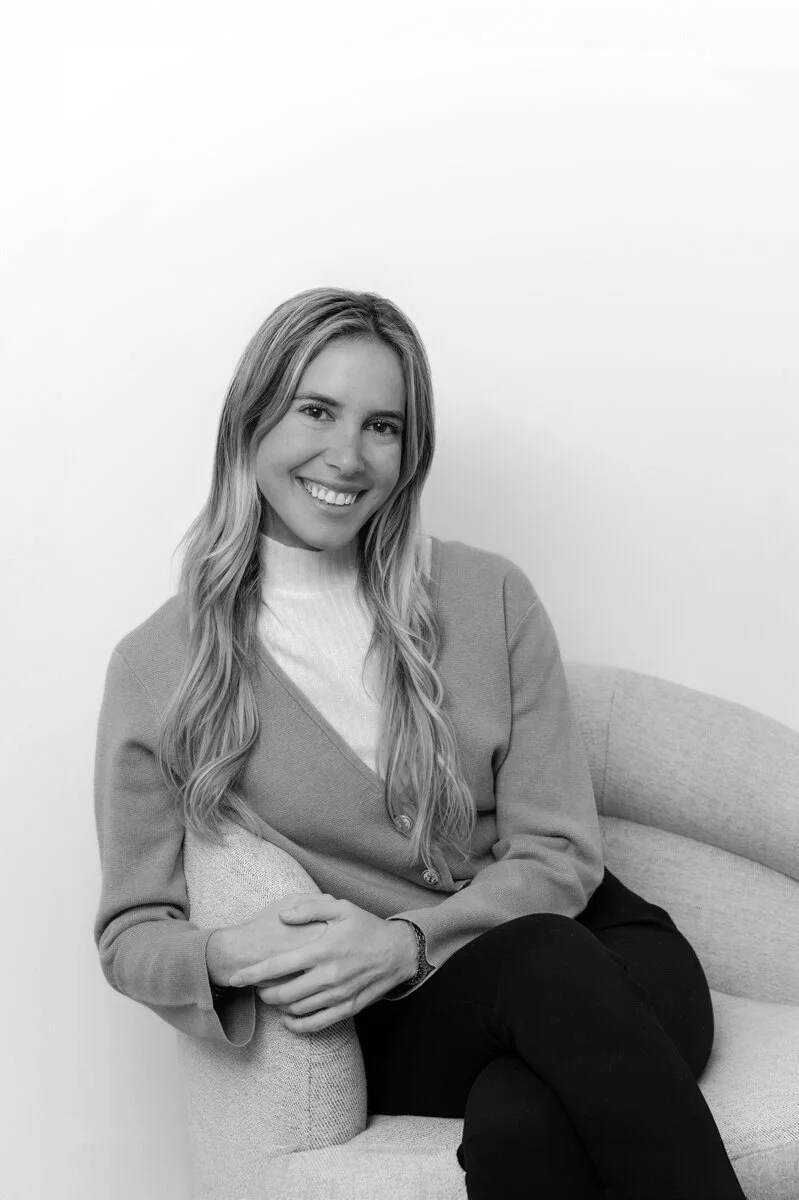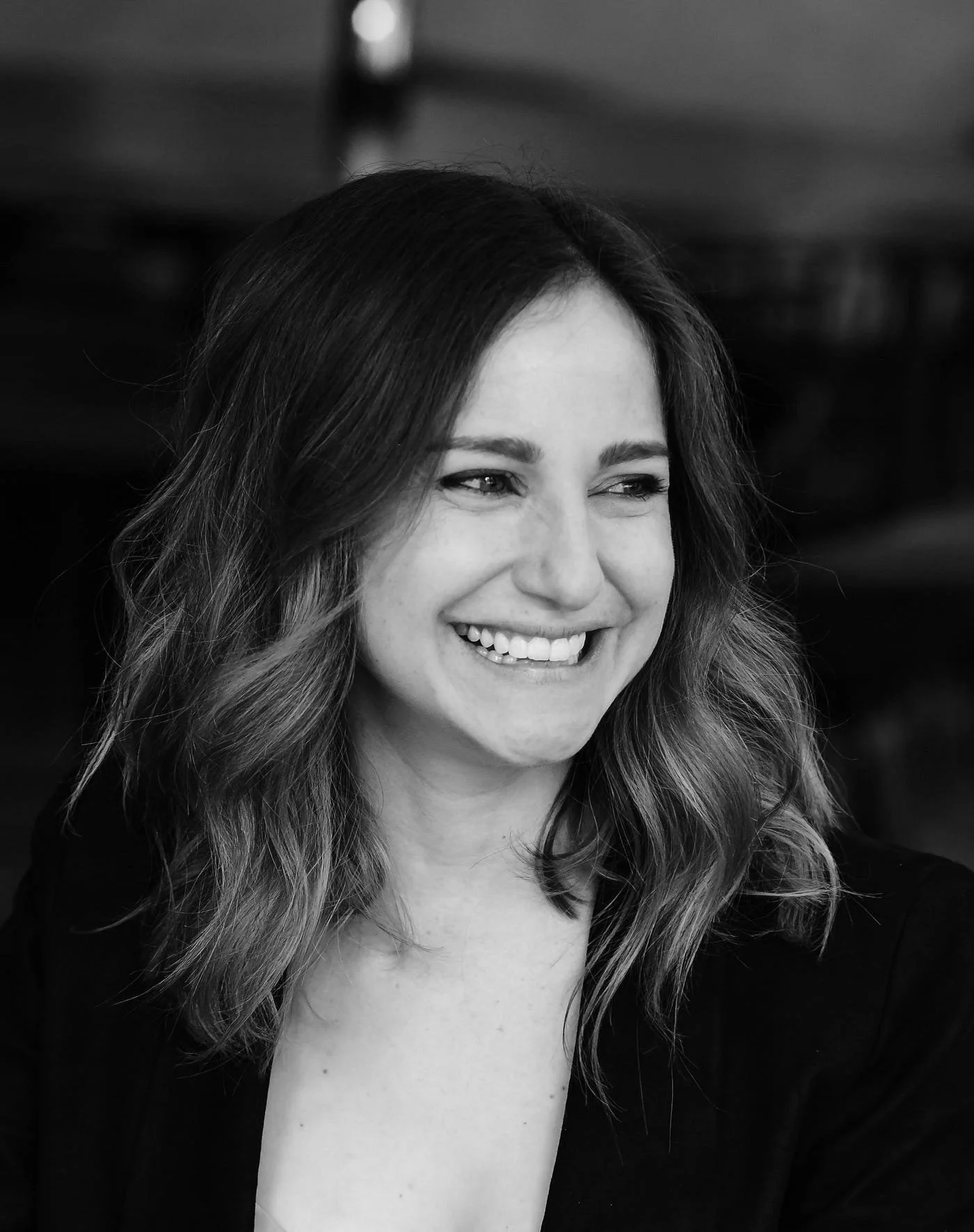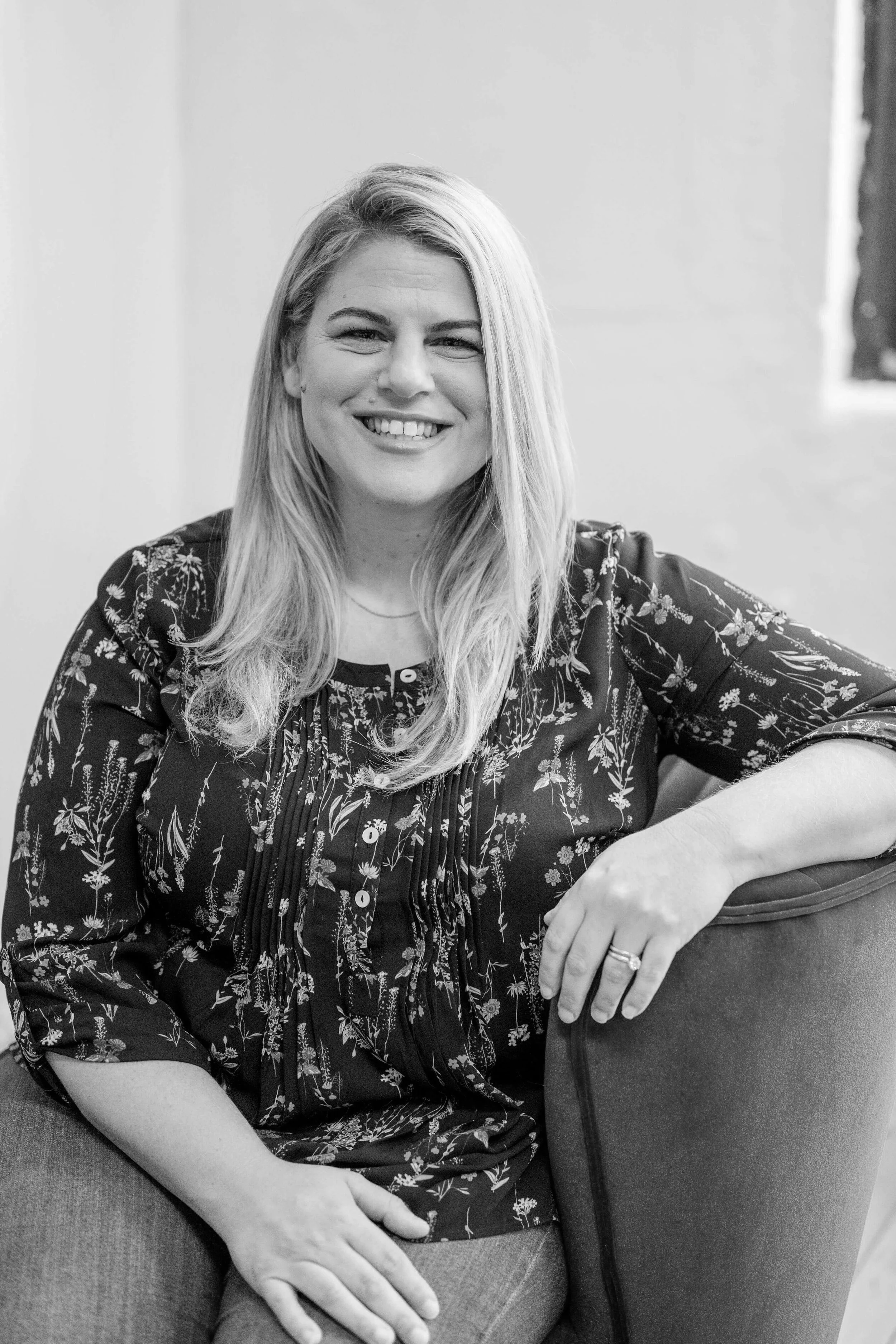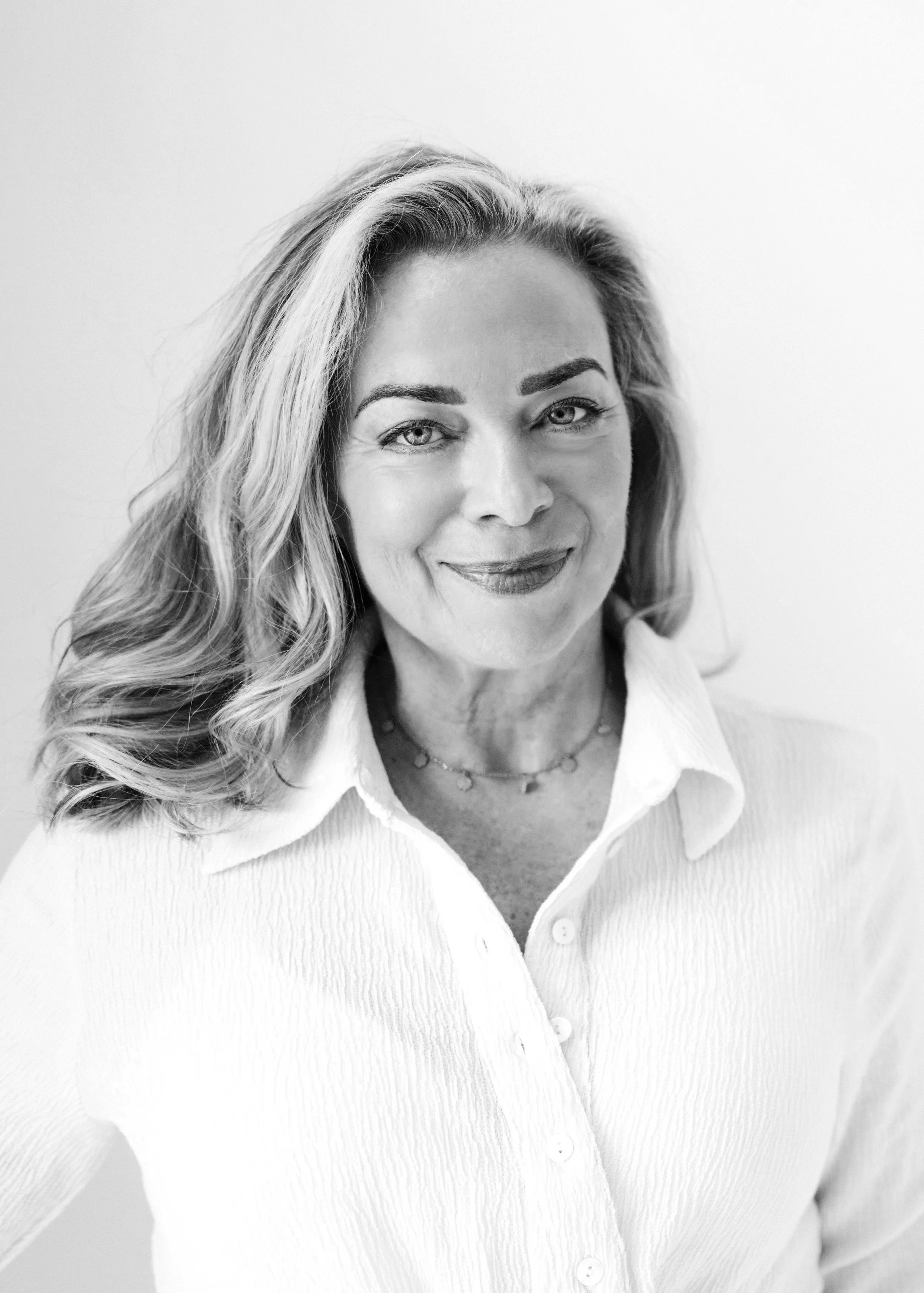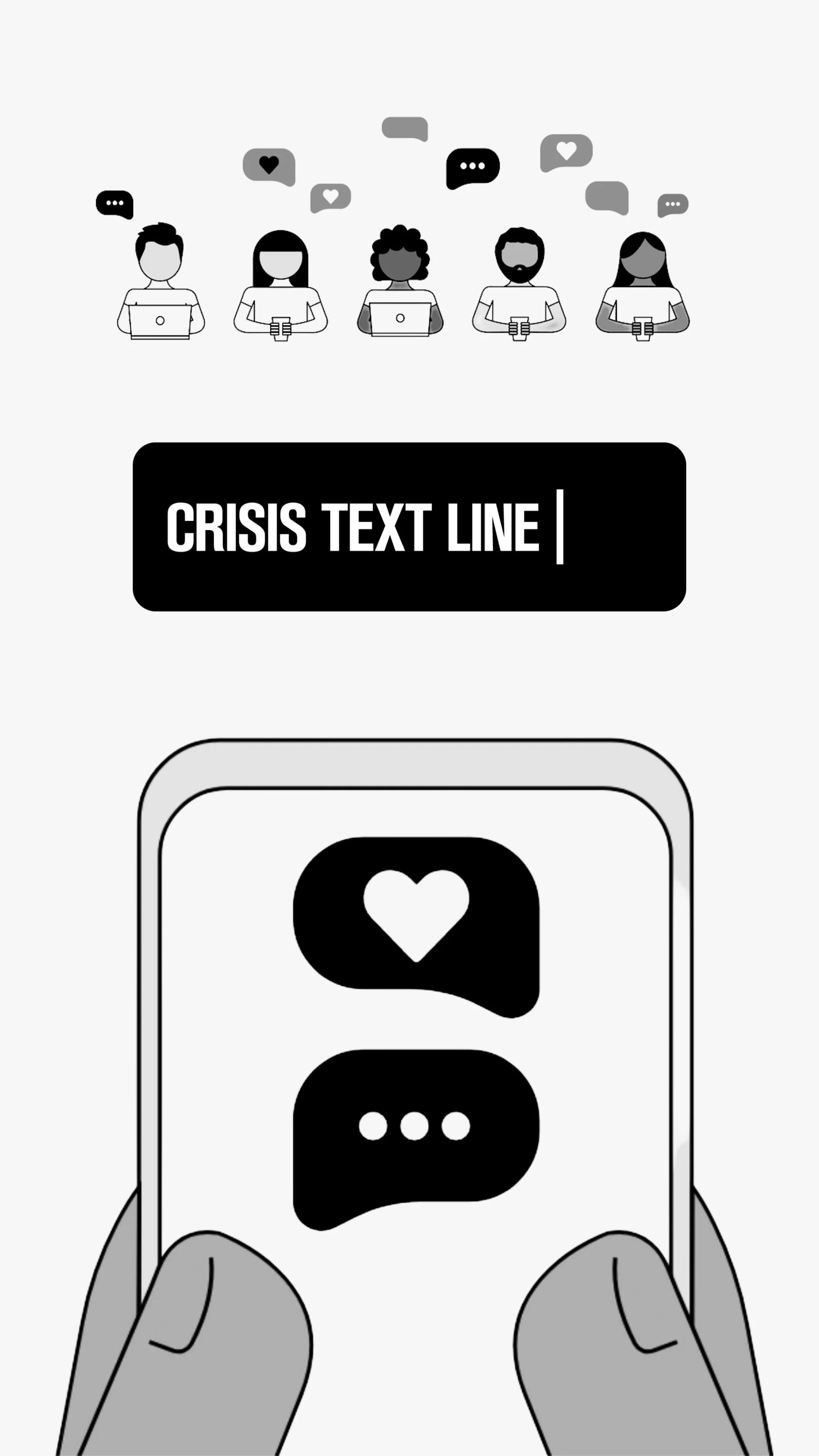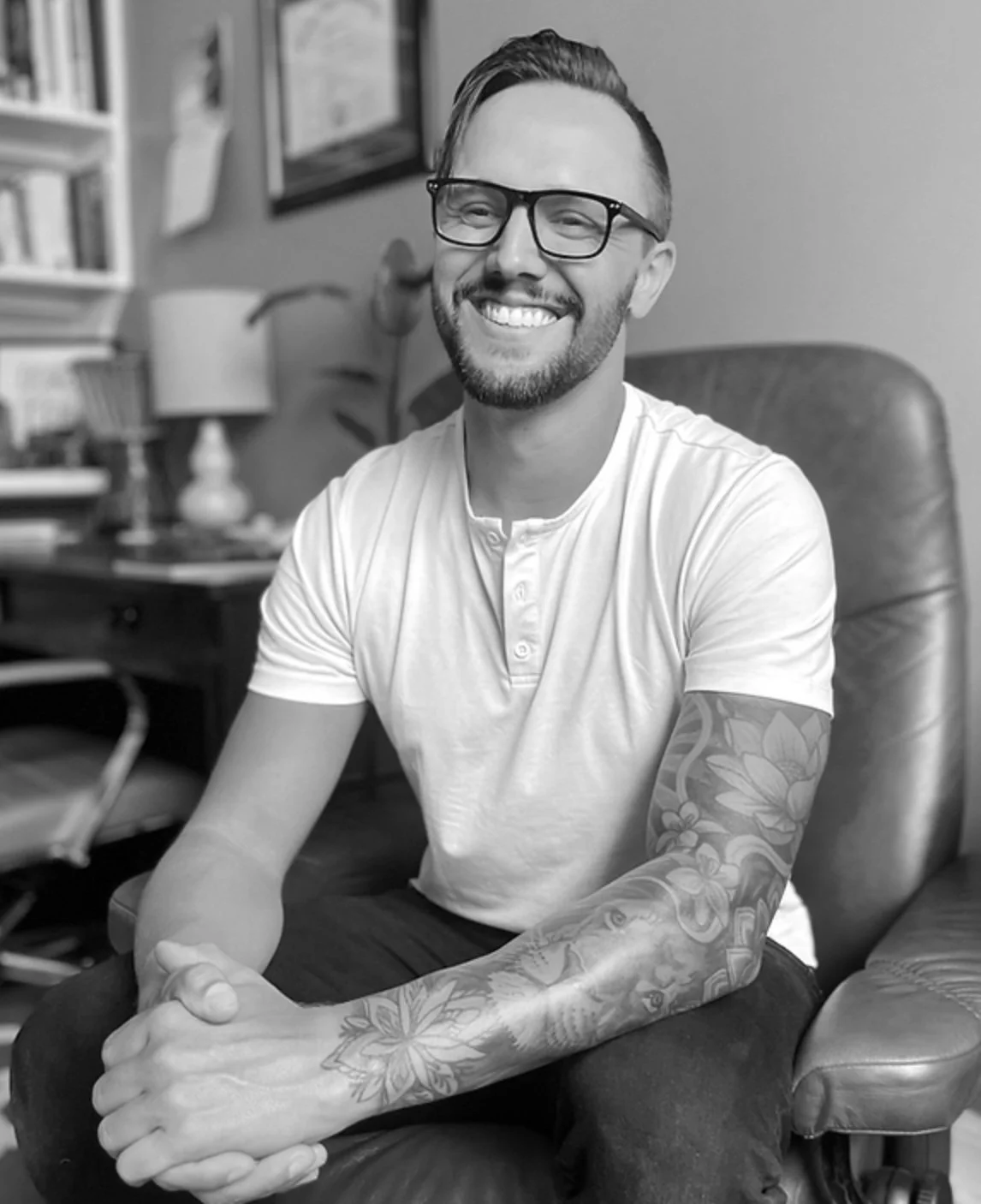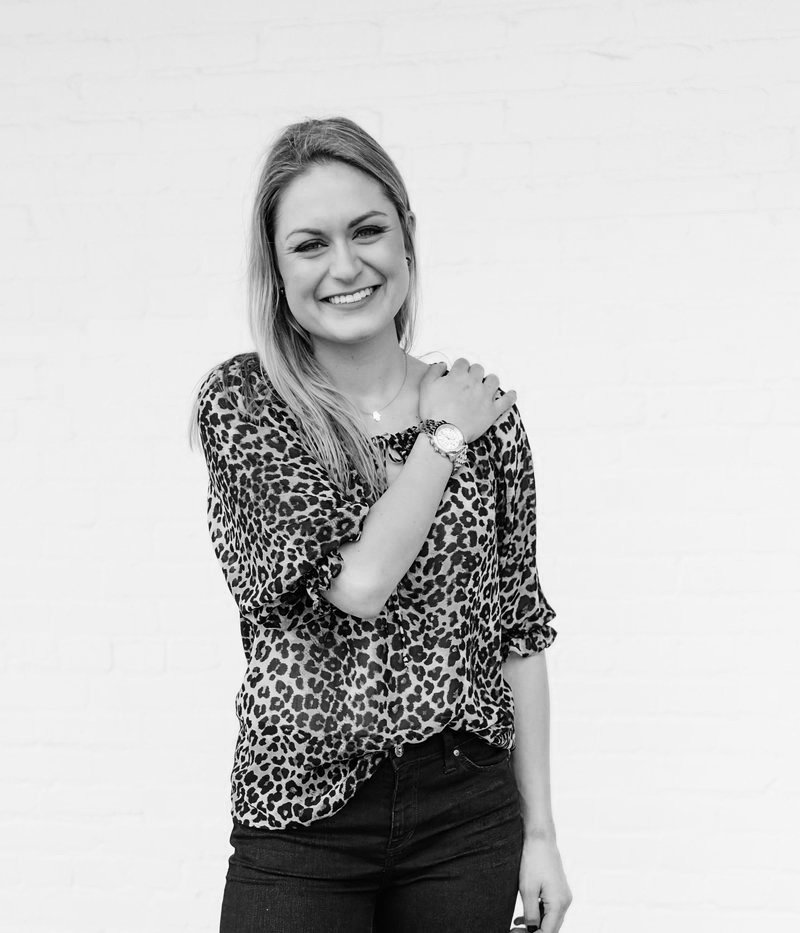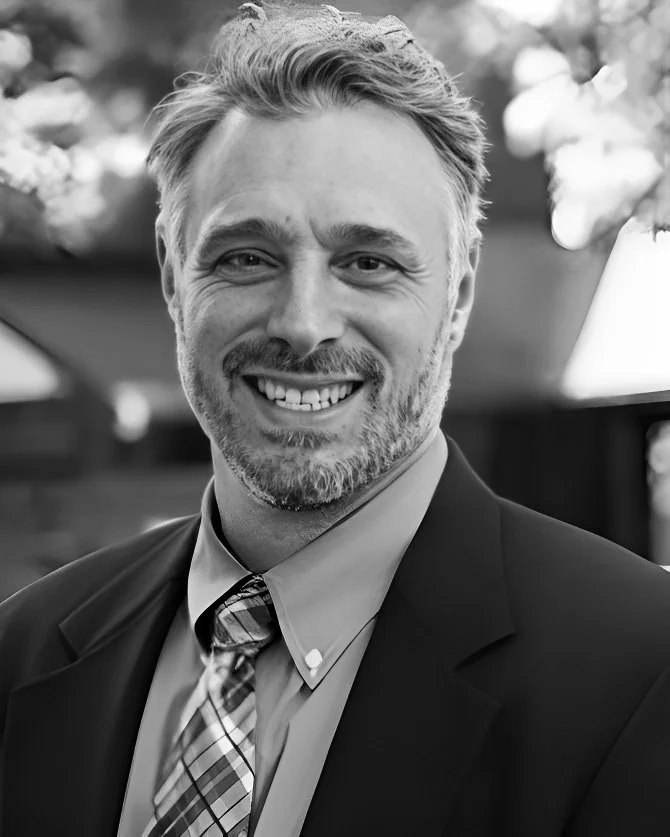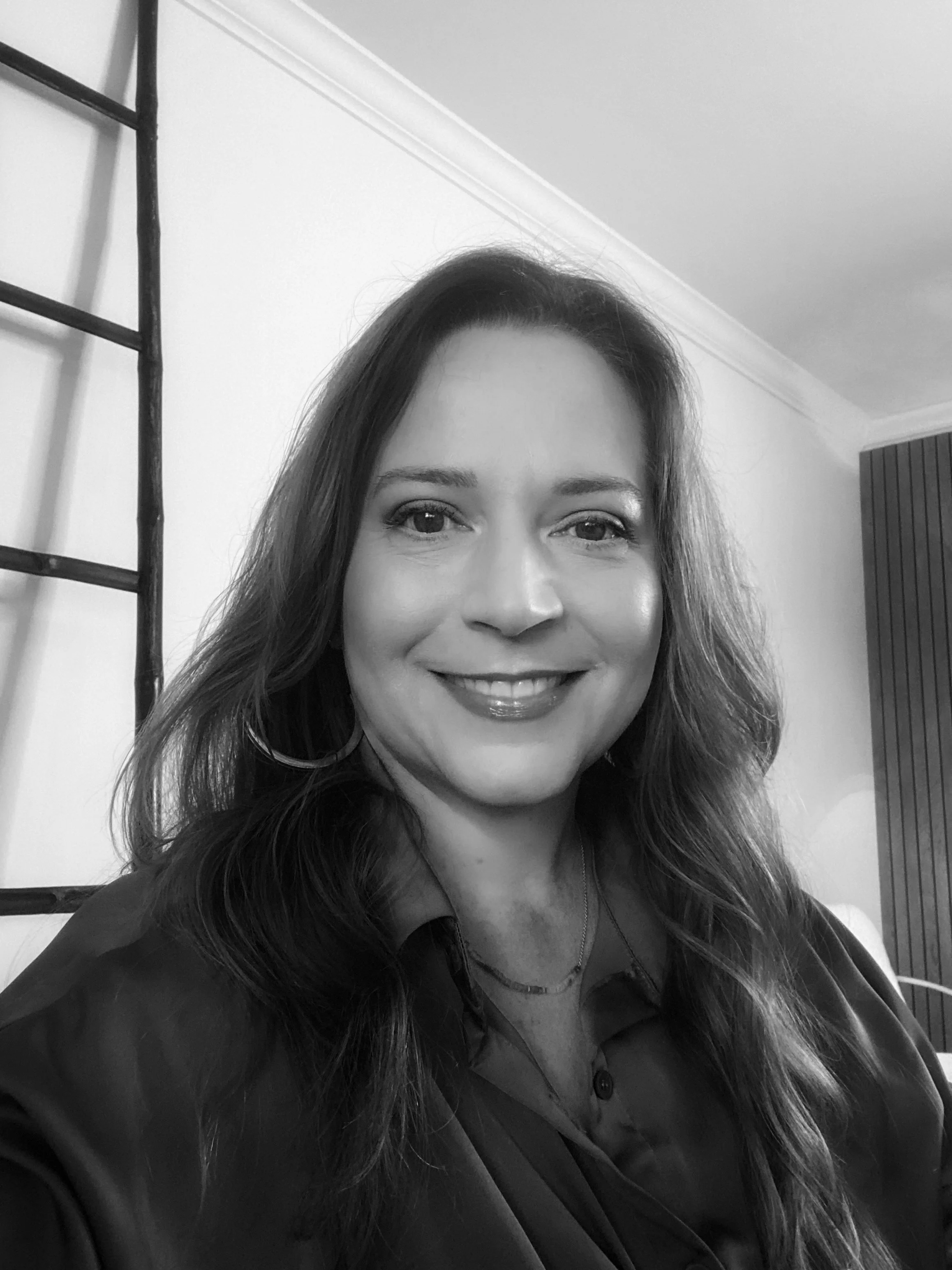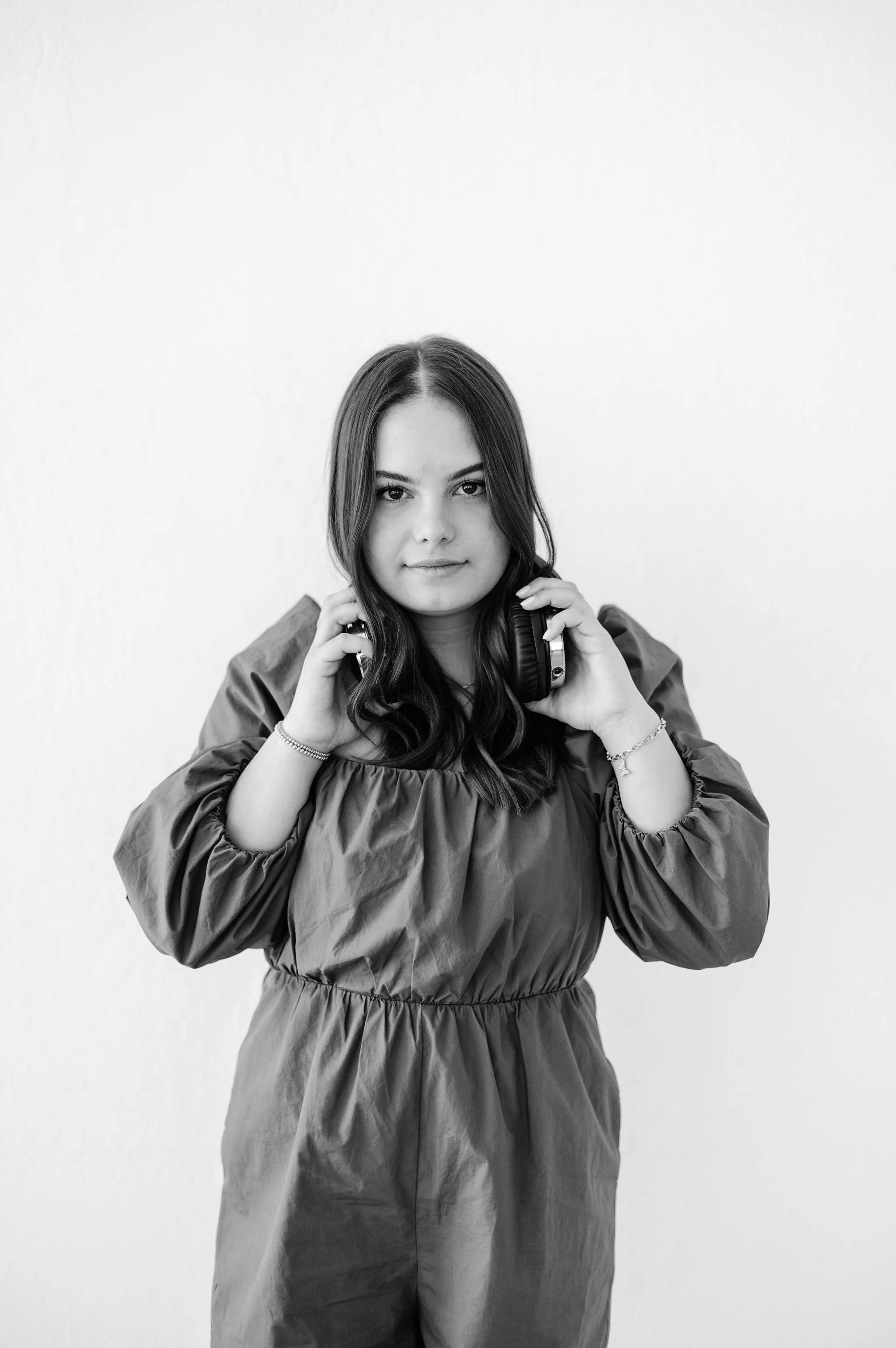180. All About ADHD: Symptoms, Misconceptions, Diagnosis, & More feat. Dr. Roberto Olivardia
listen to this episode:
Tune in and subscribe on your favorite platform: Apple Podcasts | Spotify | Stitcher | Google Play | Radio Public | PocketCasts | Overcast | Breaker | Anchor
Today's guest is Dr. Roberto Olivardia— a clinical psychologist and lecturer at Harvard Medical School and founder of a private practice that specializes in treating ADHD, Body Dysmorphic Disorder, OCD, eating disorders, and other issues that face students with learning disabilities. Dr. Olivardia also has lived experience as someone with ADHD and learning differences, as well as being the parent of two teenagers with ADHD and Dyslexia.
In this episode, we discuss…
+ Why ADHD can be so hard to diagnose
+ Why ADHD is diagnosed less in women
+ Less well-known symptoms of ADHD
+ Common misconceptions about ADHD
+ The relationship between ADHD and sleep issues
+ Biological and behavioral overlaps between ADHD & anxiety
+ Ways people with ADHD tend to overcompensate
+ If ADHD has a spectrum of severity
+ What the process of getting diagnosed with ADHD looks like
+ Getting treatment for ADHD & strategies for managing focus
+ so much more!
Mentioned In The Episode…
SHOP GUEST RECOMMENDATIONS: https://amzn.to/3A69GOC
STARBUCKS GIFTCARD GIVEAWAY
Want coffee on me?! Each month I'll be randomly choosing a winner to receive a Starbucks giftcard! To enter this giveaway, all you have to do is leave a review of the podcast on Spotify and/or Apple Podcasts and DM me on a screenshot of your review on Instagram. Win bonus entries by tagging the podcast on your Instagram story or TikTok! Good luck!
About She Persisted (formerly Nevertheless, She Persisted)
After a year and a half of intensive treatment for severe depression and anxiety, 18-year-old Sadie recounts her journey by interviewing family members, professionals, and fellow teens to offer self-improvement tips, DBT education, and personal experiences. She Persisted is the reminder that someone else has been there too and your inspiration to live your life worth living.
a note: this is an automated transcription so please ignore any accidental misspellings!
Sadie: Welcome to She Persisted. I'm your host, Sadie Sutton, a 19 year old from the Bay Area studying psychology at the University of Penn. She Persisted is the Teen Mental Health Podcast made for teenagers by a teen. In each episode, I'll bring you authentic, accessible, and relatable conversations about every aspect of mental wellness.
You can expect evidence-based, teen approved resources, coping skills, including lots of D B T insights and education in. Each piece of content you consume, she persisted, Offers you a safe space to feel validated and understood in your struggle, while encouraging you to take ownership of your journey and build your life worth living.
So let's dive in this week on She persisted.
Dr. Olivardia: I work with a lot of young women. who are in college. And they're having a real difficulty and I would say, oh, has anyone ever assessed for ADHD and they're like, no, you know, I, I'm, , a bit of a perfectionist and I have anxiety and that was always what was treated.
Well, it turns out that what we know, generally speaking, that a lot of girls who have ADHD might internalize the symptoms and develop them. perfectionism, anxiety to compensate sort of for their ADHD.
Hello, hello, you guys. Boy, oh boy, do we have an incredible episode for you today. This is one of those conversations where I left the interview and I was like, my life is changed. Like, I learned so much, just, horizons completely broadened, and I know you're going to love this too. Even if you don't have ADHD, but you do have someone in your life.
that struggles with ADHD and even just being aware of how our brains can work differently is so important. So this episode is a must listen. Today's guest is Dr. Roberto Olibardia. He is a clinical psychologist a clinical associate in psychology at McLean. He is also a Harvard Medical School lecturer. And the founder of A Private Practice specializes in treating ADHD, body dysmorphic disorder, OCD, eating disorders, and other issues that face students with learning disabilities.
So talk about a guest that is aligned with She Persisted. I was so lucky to sit down with Dr. Olivardia for this interview, and like I said, it is going to change your life. He talks about his own experience living with ADHD, , the experiences of learning differences, as well as being the parent of teens that have both ADHD and dyslexia.
So we talk about a lot in this episode. Just like you saw from the title, this is all about ADHD. So we're talking about why it can be so hard to diagnose, why it is less diagnosed in women, well known symptoms, common misconceptions, the relationship between ADHD and sleep issues.
The biological and behavioral overlaps between ADHD and anxiety, which was super interesting from a psychology perspective, we talk about ways that people with ADHD tend to overcompensate and also the spectrum of severity within ADHD. Lastly, we touch on the process of getting diagnosed and treatment and strategies that Dr.
Olivardia recommends for maintaining focus and being effective in navigating life. Like I said, This is a phenomenal episode. you guys enjoy this episode, send this to a family member or friend. I'll be sending this to my family's group chat and parents, siblings, hopefully you're listening because this episode is something that we can all learn from and hopefully you actually clicked on the link and listened to the episode.
Anyways, like I said, phenomenal. I really hope you enjoy this and a reminder that we are doing a giveaway every month where when you leave a review on Apple or Spotify and send me a screenshot, you are entered to win a Starbucks gift card. So just DM me a photo of that. You are entered. Information on how to enter multiple times is in the show notes, just a fun little, like, self care treat from She Persisted. So, all of that is in the show notes, make sure to enter if you leave a review, and I hope you guys enjoy this conversation as much as I did.
Well, thank you so Much for joining me today on She Persisted. ADHD is a huge topic that the audience has so many questions about, so I'm so excited to get your expertise here. But to start, for listeners who haven't read or heard of your work before, tell us your background and how you got into the mental health
Dr. Olivardia: space.
Sure. , it's a pleasure to be here. , I started, , pretty much in high school when I took a psychology class my senior year of high school and absolutely loved it. , I did not like school pretty much. I have ADHD myself and, , thought, Oh my gosh, what? I mean, do I even want to go to college? I just really just didn't like school.
, I loved music, but I was realistic that I'm probably not going to be winning any Grammy's. , I can keep a beat, but I'm not a, , you know, a trained drummer. and thankfully this course came along my senior year of high school and I thought this, And it didn't surprise me in the sense that I grew up in a family where helping other people, , you know, a lot of empathy and sensitivity towards other people, but the academic nature, the fact that that was so interesting to me was, okay, let's do it.
And, , went to college, majored in clinical psychology and double majored in child study. And, , and that's really where it took off. And I absolutely love what I do. And. I have such passion for it, never had a boring day, , and primarily do clinical work in my private practice, but I also, , teach at Harvard Medical School.
I do research, I, in the beginning of writing a book on ADHD, I've written one in the past on men and eating disorders and do consulting and love doing like what we're doing right now. So it's all, it's all good.
Sadie: I love it. I would like to start with probably your experience and also what you see with clients with the diagnosis process because I feel like we're hearing a lot about undiagnosed ADHD or people that get to their teens or college age like you're talking about and don't know what's going on, but they're like, maybe I'm just not meant to pursue these things academically.
Maybe my brain isn't wired to do things this way. So yeah, that's cool. What is the process or red flags or things that you look for to Tell patients, maybe it's time to have a conversation with your primary care doctor or a referral to a psychiatrist, , rather than things just being normal or just kind of how things are for you.
Dr. Olivardia: Yeah, I mean, first, you know, it is important to note that ADHD, I would say, is one of the most misunderstood conditions, , out there that, and I think what makes it so misunderstood is that people think they know what it is when they don't. Whereas there are a lot of conditions that people might say, Oh, I don't know much about that particular condition, but with ADHD, because there's so much misinformation, it leads to this perception that it's overdiagnosed when research studies.
have found and continue to demonstrate that it's actually more under diagnosed. And that's particularly true for adults. , so I grew up in a generation where, well one, we didn't nearly know what we know now about ADHD, but even for what we knew back then, , the only kids that were diagnosed with ADHD were typically boys with conduct disorders, , who were not doing well in school, who often had poor social skills.
That was sort of the kids that Some of them were my friends, you know, that I hung out with. Whereas someone like myself. who did decently in school, even though I hated school. , but I got the work done, but no one saw behind the scenes that I waited till the very last minute and didn't do all my homework.
I never read a book that was assigned to me in high school from cover to cover. , and that if I had good social skills and, but, you know, I was very mischievous kid and very impulsive. It showed in other ways. , so that's so important to sort of note. And then as far as the diagnosis. process, you know, definitely going to somebody who has expertise in ADHD, , because it isn't something that even, , it can be necessarily tested just by questionnaires and surveys.
Even neuropsychological testing or valuations are very helpful in, , assessing for learning disabilities, which half of people with ADHD have, for assessing for a lot of other things, how your brain works, and can diagnose for ADHD. However, even neuropsych testing shows a high false negative rate.
So people who in fact have ADHD don't always show up on neuropsych testing as having it. Because think about it, like with a neuropsych test, you're in a distraction free environment, one to one with someone, doing your best to try to do, you know, on these tests that is not generalizable to sitting in a 45 minute class trying to regulate your attention for something that maybe you don't, you just don't feel a sense of motivation around.
So ADHD is really the best way to diagnosis is a very. thorough clinical interview evaluation with all that other data. It could be very helpful, whether it's neuropsych testing, surveys, but all to supplement really getting a person's experience of what's going on. And part of that evaluation is ruling out other things, because ADHD can look like other things.
And it's also important that Most people with ADHD do have other stuff going on. , we say it's the rule rather than the exception that people with ADHD will have what we call a comorbid disorder. So, anxiety disorder, mood disorder, eating disorder, substance abuse. , as I mentioned, half of people have learning disabilities.
So teasing out, even if both are present, you know, what is, let's say OCD versus what is ADHD, , and really kind of teasing that out. So when I'm working with someone who maybe they're seeing me because they have, , bulimia or binge eating disorder, and it's becoming apparent sort of in our conversations that, there might be a, a presence of a lot of executive functioning issues.
So executive functioning are all of the processes that our brain has to do to get something done. So our ability to manage time, to regulate our attention, to remember things. And if a patient is talking about how there was such chaos in their day because they lost their keys and then they were running late and, and it wasn't just a one-off thing.
'cause we all have those days. ADHD, I mean, there's people that still question the legitimacy of the diagnosis, which is crazy to me, , but because people assume, oh, well, we all lose our keys. So we're not all ADD. Well, of course, like that's, we don't base something just on one symptom, just like we're all sad, but not all of us struggle with depression.
, so it's really putting it in a context and establishing a history as well of that. And ADHD is the kind of thing it can show up in different times for different people and really, , how people internalize it. Like, one of the other things is, ADHD in girls is vastly still under recognized and you'll still see places where it says that boys outnumber girls in having ADHD.
That's not true. Boys outnumber girls in the identification of ADHD. So, I work with a lot of young women. who are in college. I'm in the Boston area. I'm surrounded by a lot of great colleges and they're having a real difficulty and I would say, oh, has anyone ever assessed for ADHD and they're like, no, you know, I, I'm, , a bit of a perfectionist and I have anxiety and that was always what was treated.
Well, it turns out that what we know, generally speaking, that a lot of girls who have ADHD might internalize the symptoms and develop them. perfectionism, anxiety to compensate sort of for their ADHD. So on the outskirts, they could be straight A students. They could be super quote unquote on top of things, but the amount of energy that it takes and, and what compensating for is making up for that.
So that's why just a simple survey. I mean, I, I've heard of clinicians who don't understand ADHD who have said, Oh, well, this patient clearly can't have ADHD. They go to Harvard, you know, they go to UPenn. They go, I'm like, no, that's not, that's not how it works. Like, I have a PhD and I can tell you behind the scenes.
It was not always an easy thing and yet I have a passion and I'm very stimulated by Psychology and that's that's what got me through But I couldn't I would be I don't even know Dysfunctional at a job that I did not like I don't know how people do that I mean, I'm amazed actually that people have that capacity to do that.
That's ADHD person
Sadie: Yeah, you mentioned that there are a lot of symptoms that aren't what typically come to mind or would have typically been assumed when you're like thinking about ADHD. You also mentioned that a lot of things fly under the radar or look like other disorders. So what are some of those almost like abnormal presentations that are ADHD but most people aren't aware that that's the true diagnosis.
Dr. Olivardia: Yeah, so we think of even the term attention deficit hyperactivity disorder is a bit of a misnomer and I predict that in a decade we'll probably have a different name for it it's not that People with ADHD lack attention. It's more of a dysregulation of attention. So one of the misperceptions is that people can't pay attention for long periods of time.
So the question, so sometimes I, you know, in assessing, let's say, , , this happened not too long ago with a, , a boy. It's a 10 that I was assessing and the mom said, Oh, he have ADHD. He plays video games for 14 hours straight. And I think, well, that could actually be more of a symptom of ADHD. And I said, Oh no.
And I understand because again, you know, you only know what you know. And I explained to her, Oh no, ADHD is. Is if they're stimulated by it, then not only can they pay attention, but they will pay attention better than someone without ADHD, what we call the hyperfocus. And it's a very powerful zone when we're in the hyperfocus, mode.
Now, at the same time, hyperfocus could be an issue because, you know, you have to sometimes get away from that thing that you're hyperfocusing on and get other stuff done. And that could be really hard. So my question often is. How does the person pay attention when they're not so into it, but they have to still do it.
Mm-Hmm. . That's where we start to see more the rub, you know, or the tension with a DHD, so you have this real, vacillation of, of attention. The other thing is even what I mentioned with that, , young college student with perfectionism that people assume A DHD and perfectionism. is like oxymorons and that's not true at all.
It's, it's a way that people compensate. In many different ways, if they really care about something and have the resources to internal resources or external resources to do that. And so that's also important because ADHD and it, you know, when you had mentioned this a moment ago where sometimes people count themselves out of opportunities because they're like, Oh, like there's no way I can do this or, and then that pains me.
And it also pains me when people have the assumption of, Oh, well that person must not really want it. bad enough, or else they would do it. And ADHD I think of is, , sort of a way of being, in a lot of ways, where our behaviors are not always going to be matched up and aligned with our values. And so in some, we, we joke in the ADD community that it should be called intention deficit disorder.
It's like, I want to get this thing done, but just can't, like it's this hurdle, to be able to do that. , the other thing to keep in mind is, it, we are born with it. I mean, it is highly heritable and genetic, but again, it's, it will only express itself based upon what's kind of going on around it. So sometimes when I'm diagnosing people who are being diagnosed later in life and they're like, I can't have ADHD, like, why would it just show up now?
Well, the question then I have is, okay, well, let's, let's look at. Throughout your life, you know, where were the executive demands sort of more manageable. Maybe you had a lot more support. , again, you know, I'm in in a hub of colleges all around me. So I see a lot of college students who when they get to college, those who have ADHD, it could be really hard.
And they said this was never an issue before. But in high school, they might have had their parents sitting next to them while they were doing their homework. They might have had tutors. , as much as I like, I did not like the high school schedule, but it is more structured in ways. And that could be sometimes help more helpful for people with ADHD.
Whereas in college, you have to really structure your own time, , which overall I like better as a schedule, but it is a different animal that you're sort of now dealing with. I
Sadie: like to say it's optimized for avoidance because if you don't want to do something, it is so easy to
Dr. Olivardia: not do it. So easy, absolutely.
And in college, I mean, my issue is I got everything done. I did very well in college, but sleep was totally disposable to me. And, , that's something I've really impressed. You know, I have a, a son who's a freshman in college now and with my kids as a parent, , both of my kids have a DD and, and with patience is the importance of that because I really saw sleep as like, well, if this is how I add time in the day and I could still have my fun and get into my little mischief and.
Be productive and that's not healthy, sleep is really, really important. Not to mention it just exacerbates those ADHD symptoms. So I would write papers overnight, you know, and I would do well because writing. is a strength of mine. I could read overnight.
Reading is very labor intensive for me. I fatigue very easily with reading. So it can show itself in different ways. And so again, don't assume, Oh, well, that person does clearly doesn't have ADHD because we don't know what external structures, are there that might be holding something in place that all it takes It's like a Jenga, you know, thing.
You remove one thing and The whole building could fall down very easily.
Sadie: Is that something you see a lot with sleep and ADHD, that there is a disruption or like an abnormal relationship between the
Dr. Olivardia: two? Absolutely. Sleep, I don't know anyone with ADHD that doesn't have an issue with sleep. again, making a lot of predictions here, , that in the DSM, it will be a criteria in the DSM because there is a lot of neurobiological research showing that sleep disorders and difficulties are sort of almost like come hand in hand with an ADHD brain.
we will see higher incidence of insomnia. of sleep apnea, of narcolepsy, of something called sleep paralysis, where people are paralyzed, but they're like a way, , REM, which is the dream sleep abnormalities, circadian rhythm abnormalities, something called the delayed sleep phase syndrome, where people are , actually not only don't get tired at 10 or 11 o'clock, but actually get a rush of energy at 10 or 11 o'clock and are up till about 2am and then they start to get tired.
It's like their circadian rhythms are sort of like offset, very common in ADHD folks. , kids with ADHD have higher incidence of bedwetting. , and which is really seen as a sleep dysregulation issue, that their body is not properly waking themselves up to go to the bathroom, , sleepwalking, sleep talking, , probably the most common is the difficulty of getting to sleep, like shutting off the brain to sort of fall asleep.
Oh, it's really hard. , and as someone with ADHD, I mean, all of what I just mentioned to you with the exception of bedwetting and, , narcolepsy. I have dealt with. I mean, sleep walking, sleep talking, you know, waking up and just really finding it hard to go back to sleep. , but the best quote I heard many years ago in an ADHD conference was for someone with ADHD going to sleep is lying in a dark room waiting for nothing to happen.
I love that so much. It's so boring. It's like, Oh my gosh. And then the average person, it might take them 10 to 20 minutes that they're lying in bed. awake going to sleep. For an ADHD person, that 10 to 20 minutes is like, we need stimulation. And so now I'm going to start thinking about it could be something I'm anxious about.
It could be something I'm excited about. It could be something I'm trying to solve, like the world's problems. You know, in bed at midnight, it's like, no, I need to just, focus on going to sleep, which is really, it's, it's still, I, I've just accepted it's just always going to be an issue for me.
but I work at it, you know, and then there are other things that someone with ADHD has their strategies and it. You know, like I'm very good with time management, and that comes more naturally, but only because I worked at it.
Sadie: Mm hmm. Mm hmm. How do you differentiate between ADHD and anxiety? Because when I think of some of these things you've mentioned, it's very similar to how people describe anxiety sometimes.
Like, I can't fall asleep, my mind is running, or I can't focus on what I'm doing. And obviously there are two different diagnostic criteria, and like, The cause is very different, but I think this is very similar to what you said, where things can present and look like other disorders. So how do you, as a clinician and also with the literature, kind of differentiate and separate people with anxiety and people with ADHD?
And obviously, like you mentioned, there's probably a high rate, but how can people kind of mentally separate the two?
Dr. Olivardia: Sure. Yes. So about 30 percent of people with ADHD have anxiety or an anxiety disorder, and that could be generalized anxiety disorder, worry, OCD, , phobias, social anxiety, , you know, all of that.
And sometimes the anxiety is secondary to the ADHD. So one of the things I always assess when people have anxiety is how much of this is, I mean, anytime ADHD is presenting with something else. , we always have to make sure we're treating the ADHD and you know, is, is for anyone who's listening to this podcast.
It's so important because ADHD is also vastly clinically underappreciated because it's not a mental illness. Like ADHD is not a mental illness. For me, I see it as like a way of being kind of in the world. And Untreated ADHD will undermine the treatment of any comorbid disorder.
So you always have to look at the ADHD because unfortunately I've done a lot of consultations or work with patients. who have done previous work with therapists where the ADHD was sort of pushed aside. It's like, okay, well, you're not in school anymore, so we don't have to pay attention to the ADHD. And I'm like, no, ADHD affects every life domain.
including, you know, as an example, I had a patient who I was treating, he has OCD and ADHD and he was like 40 minutes late for a 50 minute session week after week and I know he was trying to get on time and he Had so much shame around it and he had actually been fired From previous therapists because they're like, I don't think you're ready to do this work or you might not want it enough And he did it was his ADHD was getting in the way of his managing time So we had to focus on the ADHD before we can even get to the OCD So back to your question about how do you differentiate is first?
I always want to know how much of this is really part of the ADHD, that if we're working with the ADHD, because of course you're going to, let's say if you're a college student and you care about doing well, but you're procrastinating because of the ADHD and you're, and that's making you anxious because you're thinking, oh my gosh, I want to do well, well, we have to make sure we're honing in on the ADHD and then some of that anxiety will go away.
, other times They're just kind of parallel to each other. And so part of it is really of getting to the etiology of, what's actually happening. And. For a lot of people actually even kids that I work with they're pretty good at I use the analogy of you know Who's driving the bus of what's kind of getting in the way?
So a good example of this would be working with this young boy He's 10 and he has ADHD and obsessive compulsive disorder and he said, you know, dr. Rome I think the ADHD was it Like, it was definitely driving the bus today and I said, okay, what, what do you mean? He goes, I was sitting in class and the teacher was just talking and I'm just like, Oh, I was so bored.
And I was looking out the window and I was seeing the beautiful foliage, and looking at the trees and I was just kind of bored. And then I was looking at the trees and then I had an intrusive thought. His OCD has these very intrusive thoughts. That he could cause harm to people and then he would have to have these rituals to prevent him and his mind from causing harm and of course, the way OCD works, he's not going to cause harm to people, so he would suddenly have this intrusive thought, but he said.
I don't think that thought would have come into my head if I were properly paying attention. You know, it's almost like the ADHD kind of had me wander and then the OCD just came right on in, he said, and it was so insightful and it's so true versus he has had other experiences where he is totally engaged in what's going on, let's say in school, and then he describes it as a lightning bolt hits him of an intrusive, obsessive thought.
that like just whacks him, he said, and you know, in the head, and he goes, and it just almost forces you to pay attention to it. It's as if you're watching a movie that you like, someone's grabbing you out of, he goes, that's when the OCD. So then we start to see, okay, you know, where is it, the OCD, you know, the ADD.
, but even with anxiety, a lot of times, if you, anxiety, has aspects of it that are an attention dysregulation as well, you know, because in anxiety, we're paying in a sense, too much attention to something that we see is threat related. And we're not able to distract away from it. It's almost too sticky.
The thought with ADHD, if it's something we're not stimulated by, it's not sticky enough that Even though we know, yes, I have to listen to the math teacher, but oh, so boring, but it's not sticking. We just can't like, you know, get to it. so they really feed off each other where the ADHD can fuel. the anxiety because an ADHD brain is always drawn towards what is stimulating and that's neurochemically based, dopamine which is a neurochemical, people with ADHD have low levels of dopamine.
So we're always looking for what is going to basically raise that level of dopamine. Now everything that's Pleasurable is increases dopamine, , but, and everything that's pleasurable is stimulating, but not everything that's stimulating is pleasurable. So anxiety is very stimulating, but it's not pleasurable at all.
And even sometimes people with ADHD who have anxiety, , loved ones will say them, it's almost like sometimes. You're almost looking for something to be anxious about and in a way that's true, but it's not Subjectively that somebody's like, oh, I want to be anxious right now. It's that the ADHD brain would rather Be anxious than bored as strange as that sounds like it's because it's at least stimulating, but we're not wanting it So it's also making sure that we're grounding ourselves and and treating that ADHD Component and then other times people are aware.
No, this is anxiety This is coming from the outside which if anything is making the ADD worse Because certainly when both are present both conditions become worse as a result of it
Sadie: You mentioned earlier that it's not about the attention itself. It's about what they're doing to compensate or getting themselves to pay attention and Almost how they're like even sometimes.
So what does that look like especially for Later in life, after you transition out of this super structured environment, how are people compensating, especially in these almost ineffective ways, whether it's, , avoiding procrastinating all of these different things?
Dr. Olivardia: Yeah. So the unhealthy. Parts right would be avoidance is probably the number one and and it can look You know, especially for for younger people it can look oppositional.
It can look lazy. It can look, you know Oh, you're just not motivated. You got to try but if people understood how difficult I mean This is why ADHD is different than just someone who's just bored because everyone could say well when I'm bored It's harder for me to pay attention to something. Of course, that's true for everybody But I I think of the example of You know, a a non ADHD person, it's like they're if they have lighting, they have a dimmer switch.
So you turn the knob and of course, when it's at its brightest, you're the most connected, but you can, you can like move it. And even if it's. 50 percent on, there's still light in the room, you might have to squint, but there's still light in the room. An ADHD person, we have the good old fashioned light switch, like the lights are on, or they're off.
I mean, that's kind of how I operate in a lot of ways. And it was very difficult getting through school, particularly before college. After college, it was totally different because the lights were on all the time, because I loved, I, I could. Eat psychology for breakfast. I mean, it was just so, I still feel that way.
I mean, there's always more and more and more and more to learn, but Oh my gosh. And pre calculus and like everything in high school and just getting up so early. I wasn't a morning person. It was. I mean, if there were iPhones invented back then, my friends would have had great viral videos of me drooling down my face because I was so out of it.
And my friends who did not have ADHD, most of my friends did. , but the ones that didn't would say, like, why are you falling asleep? I'm like, oh my gosh, I'm so bored. And they would say, oh no, we find this class boring too. We don't fall asleep.
We're able to stay awake. And I remember thinking, huh, that's interesting. Because I made the assumption that people found it interesting because they're awake like they're able to sort of pay attention to it So I thought that's really interesting like how I could and then the next class I could be the star student Participating because I'm engaged and really loving it and it could it was confusing even to me to understand like how was I so?
comatose in the class before and now I'm You know, really active, so avoidance is huge and with procrastination, it's helping people understand that it's not a matter of, Oh, I'm going to push it off. like if I had a paper to write, for example, and I tried to write it a week before it was due.
It was like my brain was molasses it's almost like I couldn't, I would sit there and it just wouldn't come out I get so distracted and part of it is that my brain knows. I don't have to do this right now. And, you know, an ADD brain is. we say there are two time zones. There's the now and the not now zone.
And if I don't have to do it now, it's kind of not in my vision. , it's almost like it's not in my visual field. Why am I and again, it sounds like it's a choice, but are neurochemical underpinnings and neurological underpinnings to this. Now, it doesn't mean. Oh, well, I can then definitely not get it done a week.
I had, again, there are strategies and we can talk about that. But just to understand the, the experience of it now when that not now zone. becomes the now zone, a. k. a. the night before the 15 page paper is due, my body is now getting this surge of adrenaline. And one of two things can happen for people. So there are some people that just shut down because they're like, there's no way I can write this paper in 10 hours.
Like, that's just not going to happen. And then the paper doesn't get done. Or in my case, because writing is, is a strength of mine, I don't know how to explain it except like somebody just injected me. with adrenaline and my brain is like all fires lit and on. Flow state to the max.
Total flow state. And I could write these, and again, it would sacrifice my sleep. No, and I didn't even drink coffee or any caffeine at the time. That's impressive. Just pure adrenaline. And I end up getting A's on the paper, and I remember, I have an older brother, I have a brother and sister, I'm the youngest, and we all have ADD, but his works very differently than mine, and he would be amazed that I could do that, and I would be like, I don't really see this as a great thing, I'm like, I'm exhausted afterwards, and part of me, honestly, I remember even when I was younger thinking, you know, I kind of wish I got a C on a paper because I wouldn't be happy with a C on a paper, , so that it would force me to sort of have to come up with another way of doing this.
But because I would get rewarded for it, it was so hard, you know, to be in that, procrastination trap. , yeah, but on, on the upside is that when people, part of the strategy of working with that with ADHD is. understanding kind of how our brain works and then what's going to help sort of support it.
So I know, for example, that like listening to music when I write is very, very helpful for me. And it's not instrumental music. I'm listening to punk music. I'm listening to hard, you know, stuff. I'm a huge music fan. And that could be super distracting to somebody else. But for me, it's grounding me in that moment, which then enables me to, to do that.
The other things in our environment that could distract us or support us. So as someone with ADHD, part of. the work of it is really kind of, which I think is kind of cool, like really knowing yourself. Like, I am really, I'm an expert. I have a PhD in me, you know, at this point in my life, because I kind of had to, like, I had to assess Oh, why did that work?
Or, you know, what made this so hard? I was like a strategist constantly. And I always say to, to, clients I work with that, if you can manage and navigate through this, like, I do attribute a lot of my creative problem solving skills to this brain, because I kind of had to figure stuff out, and I am really good at figuring out efficient ways of doing something, because I had to.
Sadie: Does ADHD fall on a spectrum? We know that, , lots of mental illnesses do. I feel like I haven't heard as many people talk about, like, severe versus minor ADHD. Is that how it works? Or it's like you have ADHD or you don't?
Dr. Olivardia: It's a great question. And different people in the field will, would answer that differently.
I think is in some ways, yes and no. I mean, from the perspective of, I would say it present sort of more on a spectrum versus I don't see it as, , You know that the actual, having a DHD, like you either, 'cause we know there's a genetic component. Mm-Hmm . So you either there's a gene there for it or you don't, have it now for why we sort of move away often from terms like severe A DHD
'cause it, even within an individual, it could be severe at this time in their life, but then at this other time in their life, it's less of an issue. Yeah. It could be severe in this environment. but totally controlled and managed in this other environment. And so we move, we kind of move away from those terms because we also don't want to denote on either end, like in having, , somebody, you know, think, oh, it's severe, meaning that.
Everything's going to be hard for them or the opposite. Like if someone is seen as having mild ADHD, well, what does that mean? Like if mild ADHD is, Oh, they only have an issue, let's say with time management, you know, maybe they're not impulsive. Maybe they're not. , addicted to drugs and things, you know, people with ADHD, we have.
four to six times higher risk of any any kind of addiction. So drugs, alcohol, food, porn, gambling, spending, you name it. Like whatever we like, we run the risk of liking too much. , and so that's always a very important thing and I certainly, you know, my own life have had to toe that line and, and talk to every patient I've ever worked with to say, just please know that like, know that yes, you'll have friends that all smoke weed and a lot of them aren't going to have a problem with it.
A lot of people drink in college and they're not going to have a problem with it, but understand that if you like it. Your proclivity to have a problem with it is very high. It's just something we have to be aware of. So when we of understand that, chemistry, we're sort of more informed.
But let's say if somebody, quote unquote, just has time management issues. Well, is that mild? Because if you're late for work all the time, you can get fired. If you're fired, you're unemployed. If you're unemployed, you can't pay your bills. If you can't pay your bill. I mean, like, so one of these things, if, if, you know, it's mild because, , maybe you lose track of conversations, well, that could really impair your social life, which could really lead to depression if you're lonely and ostracized and socially excluded.
So, yeah, I, I don't think of it so much as like a spectrum. Now, the behaviors associated with ADHD, certainly, , there are lots of people that could be forgetful and things like that, but that could be due to, other things or just This very sort of isolated, trait, , so yeah, so I, I don't necessarily see it, the existence of it on a spectrum, the expression of it, we definitely could see on a spectrum.
Sadie: Yeah, I would love to get into diagnosis and then treatment. For listeners who have never gone through this process before, What is the process of getting diagnosed? Why are so many people misdiagnosed? You mentioned that it's really a myth that ADHD is over diagnosed. Do you, because there is that myth, is there resistance to labeling people with ADHD?
All of that, what's that process like? , and, and what is your experience been also being an expert and probably having a lot of clients come in that have been referred from other clinicians and been like, Hey, it's such a different experience before I met you and started working with you and all of that.
Dr. Olivardia: Yeah, I think it starts with, , speaking to a professional who has. expertise in ADHD. And why I say that is that even as clinicians, as psychologists, I learned very little about ADHD in graduate school. And this is the case even today. So something that affects upwards of to 10 percent of the population, I learned a ton more about schizophrenia, which affects 1 percent of the population.
Now I should know a lot about schizophrenia, but I should know a lot more about ADHD, seeing that it's going, and especially if you're working with children and adolescents, it's probably the most predominant diagnosis. And it. It amazes me how we still have a far way to go even in the mental health community and training.
because most of us as mental health professionals are trained in anxiety, depression, but don't assume that every clinician has specialty and expertise with ADHD. , they really don't in the same way that we wouldn't assume that everyone has specific training in substance abuse or eating disorders.
Like those are other fields that lots of clinicians don't work with. , so meet with someone who has, that does these kinds of assessments. , and then typically what they're going to do is ask you a lot of questions. They might. give you some surveys, some questionnaires for, for students.
I often do recommend doing neuropsych testing as an adjunct to everything else because neuropsych testing, again, is very good for, , uncovering the presence of any learning disabilities, which half of people with ADHD have, but also just as a way of understanding how your brain works and how it sort of processes information, which is, I think, great data.
If you're not a student. I mean, sometimes, , I've had adults who do neuropsych testing, but in, in adulthood too, we have often found ways to overcompensate for things. So if someone is just looking for an ADHD diagnosis, I wouldn't say, I mean, it could be expensive too, like neuropsych testing. , For students, it could be helpful as in terms of getting accommodations and things like that, but you'll be asked a lot of questions You'll be asked questions of Really establishing a history family history because again, it's highly heritable It's as heritable as height and intelligence.
So if you have ADHD there's a really high chance one of your biological parents do. It's very rare. Now, they might not have been diagnosed. And so a lot of times, , I mean, it's almost, it's humorous sometimes I'll work with a kid and, and ask, you know, their parents, well, I'll meet with the parents separately and ask if either of them have ADHD and they're like, no, you know, I don't think so.
And, I have a feel, you know, it's like the radar. , and I'll sometimes ask a couple more questions and lo and behold, usually it turns out that they compensated or they grew up in the same kind of generation I did where it's like it was sort of missed and they just kind of worked with it in a different way.
And I'm very well aware that, , a younger generation, you're growing up with a lot more distractions than I grew up with, , you know, with social media and the internet and those kinds of things. So speak to, to someone, , You know, really gather history and part of the interview and the evaluation process is ruling out other things, or understanding how those other things could be because sometimes of the ADHD or are, are masking the ADHD.
So it's not a quick thing. I think, especially in the pandemic, there was this surge of people who were getting diagnosed. online without even talking to a professional, which is just bananas to me. It's like, no, like online IQ tests. Yeah, exactly. It's like, no, that's not how it works. , And at the same time, during the pandemic, we saw the rise of proper diagnosis of ADHD because you had a lot of people with ADHD who had their structure and their routine at work, and then they had to quarantine at home and do work remotely.
And I can tell you, I. I still am in awe that my kids were able to do that in high school and, and young patients that I work with. I never would have been able to do online schooling. I would have been, had that camera off and been eating popcorn, watching some horror movies. Like there's no way, it would have been virtually impossible for me to do that.
So A lot of people, and now there's actually a national shortage of ADHD meds, and so in the pandemic, it really drove a lot of people to get diagnosed because they were like, wait a minute, there's, I am like all over the place, and they realized the system that they had sort of worked, and some people We're starting to recognize that.
, I get a lot of adults that are diagnosed when their kids are diagnosed, and they learn more about ADHD, and they're like, Hmm, this sounds familiar. , this sounds like me. , so making sure you're talking to someone who really understands it, and then they can make a recommendation of a therapist to work with, , if the person's interested in medication.
a psychiatrist or your primary care, , physician can prescribe medication that could be really helpful as well
Sadie: for treatment. You mentioned a couple of options there. You also mentioned strategies earlier on in the conversation. You're talking about navigating college and life as a student.
What is the timeline and process and roadmap post diagnosis. Is there a typical process where you meet with a psychiatrist, then you meet with a therapist for this long? Are there certain strategies you love sharing with all your clients because they're just helpful to have in the toolkit? What does that look like after you've gotten this diagnosis and now understand this part about your brain or part about yourself?
And how do you proceed from there?
Dr. Olivardia: Yeah, so honestly, the majority, I mean, I even remember, honestly, the last time that it wasn't this way. The majority of people are. Relieved and validated by the term A DHD. It's less stigmatizing than it used to be. , there's still some stigma there with certain groups or certain ages, again, older people, young people, the, I mean, there are a lot of things I can say against social media.
, very strong feelings. But one of the good things about it is it has desig, destigmatized a lot of. young people from, you know, mental health conditions, as well as something like ADHD and it's because the information is out there, people have heard it, they're like, Oh, yeah, my best friend has ADHD and takes this medication.
And whereas 20 years ago, that was not the case. I mean, people like, , they almost cringe, like, what does this mean? Is my brain defective? You know, what's the problem? So most people, when they understand that it's they're not crazy, they're not lazy, they're not stupid.
It's this is kind of what it is, the wiring. And I always present it as like a coin, you know, you have the heads and the tails that you can't separate. So I can attribute. challenges, frustrations, difficulties, dark moments in my life to the ADHD, and I can attribute my successes and awesome parts that I love about myself and my brain to the ADHD.
So it's like they're just this package and we of course want to maximize the strengths minimize the challenges. , so what it would look like after is working with a therapist or, , an ADHD coach, and it's different for different people, depending on how the ADHD kind of really manifests for them. , so for some individuals I work with.
Their impulsivity is really a big problem for them so that can come in the form of having like an eating disorder or a substance abuse problem or gaming, you know, just addicted to video games. So then we would work on goals and strategies and those strategies could include trying to find other forms of stimulation because to just tell someone don't do that, it doesn't work.
You know, it's almost like, , no, I'm getting a reward. I'm getting my dopamine fix here. So how do we find other sort of healthier versions of stimulation? And also if let's say you're trying to do something understanding what needs to happen, what needs to be put in place to really sort of maximize your ability to regulate, let's say, attention for something.
, setting up your environment for success. A lot of times with ADHD it's externalizing the things that are just internally not working naturally. So to give you an example, , packing, like if I'm packing for a trip I, I hate it. There's nothing fun about it, , to me, but, , I have to pack and I make a list and I start, I call it the stick man and I draw the stick figure and I draw arrows from head to toe on this stick figure of what I need for that part of the body.
So clothing wise and toiletry wise. So the hair, I need shampoo, conditioner, hairbrush, you know, the eyes. I need this, this, this. I don't know how people just open a suitcase. And just things in. Like that's just like weird to me. I need to externalize it. I need to write it out. It has to look very, and to someone on the outside it could almost look like I'm being very like quote unquote OCD about it.
, but it's no, I have to do that. Otherwise I'm going to forget something or miss something. And so I have to externalize that. And then I can pack and then I can get the job done like anybody else can, but I have to go through that sort of process. It's just, and no matter how many times I do it, I always have to do it.
Like that's something for the rest of my life when I pack I have to do. having techniques like if somebody, you know, in managing their impulsivity, mindfulness skills is a really important part of ADHD work, how to pause, how to be sort of in the moment to then be able to have that connection of, Oh, okay, how do I be more intentional kind of with my actions, with my behaviors and where medication could be very, very helpful is in giving people sort of a platform to even really be able to access sometimes some of those skills because for some people it's really hard to do.
It's almost like if we think about a vision, you know, yeah some people they can squint and maybe they can get by and then I wear contacts like if I didn't have my contacts or glasses I wouldn't even be able to see the definition of your face. Like I would know there's a person in front of me but I'm like that bad vision and so I need that that's just that's just what it is for me to be able to do those things that I need to do and there is still a lot of stigma with medication and a lot of misperceptions around, , especially with younger people and I get it.
love their kids. They want to do the best for them. But sometimes they go if they're on medication, they're more likely to be a substance abuser. And in fact, the research has shown the opposite that people with ADHD when treated with medication are less likely to engage in substance abuse because their impulsivity is managed, , , in that way.
And so it's almost like you mentioned the toolkit, which is a great image that, I often, , say to patients like we're just collecting tools throughout life because it's not an illness model. It's like life kind of happening So we might have the toolkit now of how to get through middle school and then high school comes and guess what?
Some of those tools aren't gonna work in high school or we need bigger tools or we need other tools, you know to do that and then we get to college and then we have to pay rent and, and manage bills and raise kids so it is an ever evolving, but I always encourage people. I want people to look at it is rather than this sort of source of.
frustration and, oh, I have ADHD. It's like, you know what? Like, I'm just going to be learning more and more about myself and how I work. And what's so important to impress is you can get to where you need to get to, but the route can look very different for you it's not always linear. And so, at the end of the day, who cares?
I mean, as long as you're getting to where you want to get to, you might just have Sometimes bizarre strategies of what you need to like in order for me to get to sleep every night. My bedroom temperature has to be very, very cold, even though I get cold. I don't like the cold, but I need to make it cold.
So I have a very heavy comforter, even if it's summertime. , and I like, I need the weight sort of on me. I don't know how people sleep with a sheet. Yeah, I have a wedge. , one of those wedge incline pillows because I can't sleep straight. That feels weird to me. , sometimes I have to have. , like Enya, the, the musician Enya, she has like very ethereal music and very, very low volume, a song on repeat.
So my brain is attending to something, but not something that's stimulating it.
Sadie: I do that with old episodes of The Office that I've seen like 45 times, all in the background, but it can't be something with a laugh track because that's too much. I'm like, I'm trying to go to sleep. Don't need the
Dr. Olivardia: laugh track happening.
No, that, that absolutely is one of those strategies. I mean, sometimes it could be the laugh track, like, I would say the most common ones are, interestingly, people talk about with those office friends, , is another one that people, and then another common one that people have said is the Harry Potter audio book.
It's like, it's, it's so, , I haven't read any of the Harry Potter books, but, , someone. I've heard from people of all ages say, Oh, you know what helps me? I have to put on the hair and I'm like, I think I need to hear it just to hear this narrator. Apparently. Yeah. I mean, and so, but see now someone else.
might be like, well, how does having the office, like, isn't that stimulating the light? It's like, well, no, because if you've seen something enough times, your brain isn't getting this dopamine, it's almost like grounding you, but it's, enough of a stimulation that you're not seeking another stimulation.
And that's the beauty of understanding how an ADHD brain works is, oh, you know, that's why it is. When I wrote my dissertation for my PhD, you have an acknowledgements page and you thank your family and your mentor and all that. I thanked all of them. And I thanked all of these rock bands and musicians and groups like Hole and L7 and the Ramones and the Go Go's and Rancid, like these real like hardcore punk bands.
because that was the music I was listening to while I was typing this dissertation, the rhythm of the, punk music is very fast. And I remember someone on my committee was like, Hmm, this is interesting. No one's ever thanked Hole before. You're like, they really
Sadie: helped out. They were like, lead authors here.
Dr. Olivardia: Exactly. I'm like, you have no idea, but that's the, the irony is it's like, how does that not distract you? and yet, then there are other times, like with reading, I can't have, you know, because I fatigue very easily when I read. , and it's probably like mild dyslexia in there as well.
And I can't read for hours at a time. Like it's 20 minutes and I have to take a break and then get back into it. And, and I would easily get derailed. So it's even within the individual with ADHD, it's so important to know that it's almost like even the strategies are, are like the ADHD. It's just not consistent, you know, but you will see a pattern.
Like it's consistent in the patterns. Like I know with writing music works with reading. It does not. You know, but I can't say, Oh, with all work, music works, because that's not true. It's so specific. And so you become your own detective and your own researcher. And I mean, I always try to engender humor in it because I think humor is a very important therapeutic tool and, and you need to have levity sometimes, you know, and having ADHD, you have to be able to sort of laugh at yourself.
So, I often recommend, you know, for people to almost see sometimes the absurdity sometimes of some of the things that we have to do to do something, but in order to have levity so there's no shame around it. Mm hmm.
Sadie: Well, this was absolutely incredible. I learned so much. I know that everyone listening learned so much.
And I even think parents that are tuning in that have a kid who's struggling with ADHD, or like you mentioned, their kid just got diagnosed and now they're like, maybe this is something that I'm also struggling with. Truly just so, so, so insightful. so, so, so much. Oh, my
Dr. Olivardia: pleasure. My pleasure.
Sadie: If listeners are in the Boston area and want to work with you or read your work, where can they find you?
Dr. Olivardia: So I don't have any social media, , or website. So I just tell people the old fashioned, shoot me an email. , my email is Roberto, R O B E R T O underscore Olivardia, O L I B as in Victor, A R D as in Daniel, I A. at h m s as in harry mary sally dot harvard dot edu and i'll get back to you and even if you're not in the boston area if you're looking for resources in your local area shoot me an email because if if i know of people and i know people all over the country that do this work i i'll do my best to try to get you the right resources
Sadie: amazing thank you so so so much for taking the time
Thank you so much for listening to this week's episode of she persisted. If you enjoyed, make sure to share with a friend or family member, it really helps out the podcast. And if you haven't already leave a review on apple podcasts or Spotify, you can also make sure to follow along at actually persisted podcast on both Instagram and Tik TOK, and check out all the bonus resources, content and information on my website.
She persisted podcast.com. Thanks for supporting. Keep persisting and I'll see you next week.
© 2020 She Persisted LLC. This podcast is copyrighted subject matter owned by She Persisted LLC and She Persisted LLC reserves all rights in and to the podcast. Any use without She Persisted LLC’s express prior written consent is prohibited.






